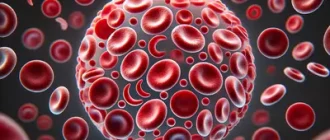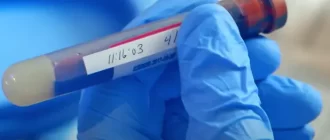You might have seen the acronym ‘BMP’ on your medical reports, or perhaps your doctor has mentioned it during an appointment. But, have you ever wondered exactly what it stands for and its importance in maintaining good health?
Your blood holds the answers to numerous questions about your body’s performance and overall wellbeing. That’s where blood tests come in — as invaluable tools that help unlock the mysteries hidden within our veins.
We’ll delve into the fascinating world of blood tests, with a particular emphasis on one specific test: the BMP, or “Basic Metabolic Panel.”
Importance of BMP Blood Test
Comprising of eight different measurements, BMP provides valuable insights into various bodily functions and processes, such as fluid and electrolyte balance, acid-base balance in the blood, and proper kidney functioning.
The test measures glucose levels, which, when elevated, could indicate diabetes. It also checks electrolytes, which control the body’s fluid levels and contribute to the proper functioning of muscles and nerves. Additionally, the test evaluates the levels of blood urea nitrogen (BUN) and creatinine, waste products filtered by the kidneys, to determine the kidneys’ efficiency.
BMP tests are crucial for diagnosing and monitoring existing health conditions, screening for potential issues during routine checkups, and evaluating the effects of medications on kidney function. As a vital part of any comprehensive medical evaluation, the BMP blood test plays an indispensable role in maintaining optimal health and well-being.
What is a BMP Blood Test and What is it Used for?
Here’s what you need to know about the BMP and its uses:
- Metabolism Insight: A BMP measures the levels of eight substances in your blood, including glucose, calcium, sodium, potassium, bicarbonate, chloride, blood urea nitrogen (BUN), and creatinine. These substances offer insight into your body’s metabolic processes.
- Diagnosing Medical Conditions: Health professionals may use BMP to diagnose conditions related to kidney function, electrolyte imbalances, acid-base balance, and blood sugar levels.
- Screening: The BMP can be used as a general health screen during routine checkups, helping to detect potential issues before symptoms arise.
- Monitoring Treatment: If you suffer from a chronic condition, such as kidney disease or diabetes, a BMP can help your doctor monitor the effectiveness of treatments and check for side effects of medications.
- Response to Symptoms: In cases of unexplained fatigue, vomiting, or other general symptoms, a BMP can provide valuable information to help determine the cause.
Overall, a BMP blood test is a useful tool in assessing your overall health, diagnosing potential concerns, and monitoring ongoing treatment for various health conditions.
Procedure of BMP Blood Test
The BMP, or Basic Metabolic Panel, is a commonly performed blood test that evaluates a person’s overall health status, as well as screens for specific conditions affecting bodily functions. The procedure typically involves eight individual measurements, including glucose, calcium, sodium, potassium, bicarbonate, chloride, BUN (Blood Urea Nitrogen), and creatinine.
To perform the BMP blood test, a healthcare professional will draw a blood sample from a vein in the patient’s arm. This can be done at a hospital, medical office, or a laboratory. Once the blood sample has been obtained, it is sent for analysis to obtain the respective levels of the tested substances. The results from a BMP test can help doctors diagnose, monitor, and sometimes prevent certain health conditions related to kidney function, metabolism, electrolyte balance, and pH balance.
The BMP blood test is not typically available for at-home testing, as the blood sample needs to be analyzed by a certified laboratory to ensure accurate results. However, the test is an invaluable tool for patients and healthcare providers, as it provides comprehensive insights into a person’s overall physical condition and potential risks. Thus, it is essential to follow your healthcare provider’s recommendations when undergoing a BMP blood test.
What happens during a BMP?
A Basic Metabolic Panel (BMP) is a common blood test that provides valuable information about your body’s metabolism and overall health. It measures eight essential substances in your blood and is used to diagnose, screen for, and monitor specific health conditions. Here’s what happens during a BMP blood test:
- Preparation: Fasting may be required for certain components of the test, such as glucose measurement. Your healthcare provider will give you instructions regarding any necessary preparation.
- Blood sample collection: A healthcare professional will draw a small amount of blood, typically from a vein in your arm, using a needle.
- Laboratory analysis: The extracted blood sample is sent to a lab where it is analyzed for the eight substances, including glucose, calcium, sodium, potassium, bicarbonate, chloride, blood urea nitrogen (BUN), and creatinine.
- Results interpretation: Your healthcare provider will examine the test results for any abnormalities and use the data to diagnose or monitor certain health conditions, such as diabetes, kidney diseases, or electrolyte imbalances.
- Follow-up: Based on the results, your healthcare provider may recommend additional tests, treatment, or lifestyle changes to improve any identified health concerns.
The BMP blood test is a useful tool for assessing your overall health and detecting potential issues that may require further investigation or medical intervention.
Results of BMP Blood Test
The results from a Basic Metabolic Panel (BMP) blood test can provide significant insights into an individual’s overall health and well-being. By measuring eight different factors in the blood, healthcare providers can evaluate various aspects of a person’s metabolism, kidney function, and fluid and electrolyte balance. The measured components include glucose, calcium, sodium, potassium, bicarbonate, chloride, blood urea nitrogen (BUN), and creatinine.
Elevated glucose levels can indicate metabolic issues such as diabetes, while abnormal calcium levels can be linked to bone, muscle, nerve, or heart problems. Sodium and potassium, two essential electrolytes, play crucial roles in maintaining the body’s fluid balance and nerve and muscle functions. Bicarbonate and chloride measurements can help assess the blood’s acid-base balance, and abnormal levels may indicate an electrolyte imbalance or specific metabolic disorders. Lastly, BUN and creatinine measurements provide valuable information regarding kidney health and function, with abnormal levels potentially pointing towards kidney disease or other related issues.
By providing a comprehensive overview of these critical bodily functions, the BMP blood test enables healthcare providers to identify, diagnose, and monitor various medical conditions, ensuring appropriate treatment plans and ongoing evaluations of individual health.
Cost of BMP Test
Here are the average prices for BMP tests at various clinics in the United States (taken from public sources):
| Provider | Test Name | Cost |
|---|---|---|
| Accesa Labs | Basic Metabolic Panel (BMP) | $19.00 – $26.00 |
| HealthLabs | Liver & Kidney Function Panel | $19.95 |
| Health Testing Centers | Renal Function Panel | $20.00 |
| Health Tests Direct | Comprehensive Metabolic Panel without ALT | $21.00 |
| Jason Health | Requisition Charge | $23.00 |
| LabReqs | CMP – Comprehensive Metabolic Panel | $24.00 |
| Lab Testing API | Comprehensive Metabolic Panel | $26.00 |
| Personalabs | Comprehensive Metabolic Panel | $26.00 |
| RequestATest | Basic Metabolic Panel (BMP) | $19.00 |
| True Health Labs | Comprehensive Metabolic Panel | $25.50 |
| Ulta Lab Tests | Compare – Kidney Test (LGC) | $19.00 |
| Walk-In Lab | Basic Metabolic Panel (BMP) | $19.00 |
| WellnessFX | Baseline | $198.00 |
The Basic Metabolic Panel (BMP) is a blood test that evaluates a person’s metabolism, providing information about kidney function, electrolyte balances, blood sugar levels, and calcium levels. The costs for this test vary depending on the provider, ranging from $19.00 to $26.00 for standard tests and up to $198.00 for more advanced panels. Some providers also offer discounts or package deals on multiple panels. It is important to note that the prices for the BMP test can vary depending on the provider, available discounts, and if additional tests or services are included in the package. If you are planning to undergo a BMP blood test, it is best to consult your healthcare provider and check with the available facilities in your area to determine the most suitable option for your needs.
About the Author
Reyus Mammadli is the author of this health blog since 2008. With a background in medical and biotechnical devices, he has over 15 years of experience working with medical literature and expert guidelines from WHO, CDC, Mayo Clinic, and others. His goal is to present clear, accurate health information for everyday readers — not as a substitute for medical advice.







